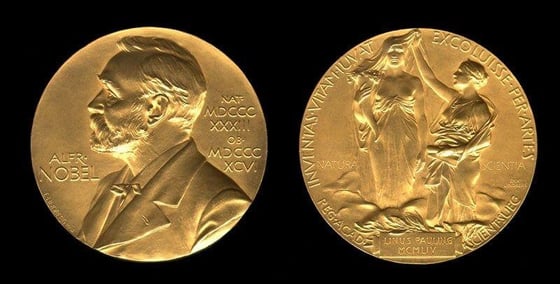From the desk of CDD CSO Sean Ekins M.Sc., Ph.D., D.Sc.

Yesterday Martin Karplus, Michael Levitt and Arieh Warshel won the Nobel Prize in chemistry. Essentially their work has revolutionized computational chemistry and anyone that performs molecular simulations will know of their foundational work well. They basically developed CHARMM.
Much was written about their achievements, some of the press was just vague, claiming importance in many areas from solar cells to drug discovery, but anyone with knowledge of computational science could celebrate the recognition. Computational chemistry has an important place in science and the Nobel Prize certainly boosts its credibility.
What is a little disconcerting is that the work was done 40 years ago. Could it be that it has taken so long for computational approaches to develop to the point where they are only now showing their worth? Could it be the computer power 40 years ago was just so tiny compared to now and that limited its applications? Or could it be that the applications computational chemistry is now used for are more relevant?
One thing some of the press mentioned was the linkage between theory and experimental. Anyone using computational models whether of proteins, molecules, pathways etc really is doing experiments. Yes there is an underpinning of theory, coded as a program but really you are doing experiments in a computer. We really need to educate the world that computational chemistry/cheminformatics does experiments they are just in silico in the computer. I guess it’s easy to get overwhelmed in the excitement after decades of working away in relative anonymity, bearing the scars from brushes with scientists that just did not appreciate that you were also making a valid scientific contribution. But it would be wrong to not recognize that to build any models or test them you need good data. If we are to improve our predictions in chemistry, biology, systems biology it will take more collaboration between scientists in these fields and of course it is critical the data we use is high quality.
As someone that came into computational chemistry via cheminformatics and before that pharmacology, I missed out on a classical training in chemistry and computational work so its great to learn about these scientists as they get Nobel Prizes. It will be fascinating to see the next computational scientist/s to be awarded a Nobel Prize for a discovery, medicine perhaps?
This blog is authored by members of the CDD Vault community. CDD Vault is a hosted drug discovery informatics platform that securely manages both private and external biological and chemical data. It provides core functionality including chemical registration, structure activity relationship, chemical inventory, and electronic lab notebook capabilities!
CDD Vault: Drug Discovery Informatics your whole project team will embrace!


